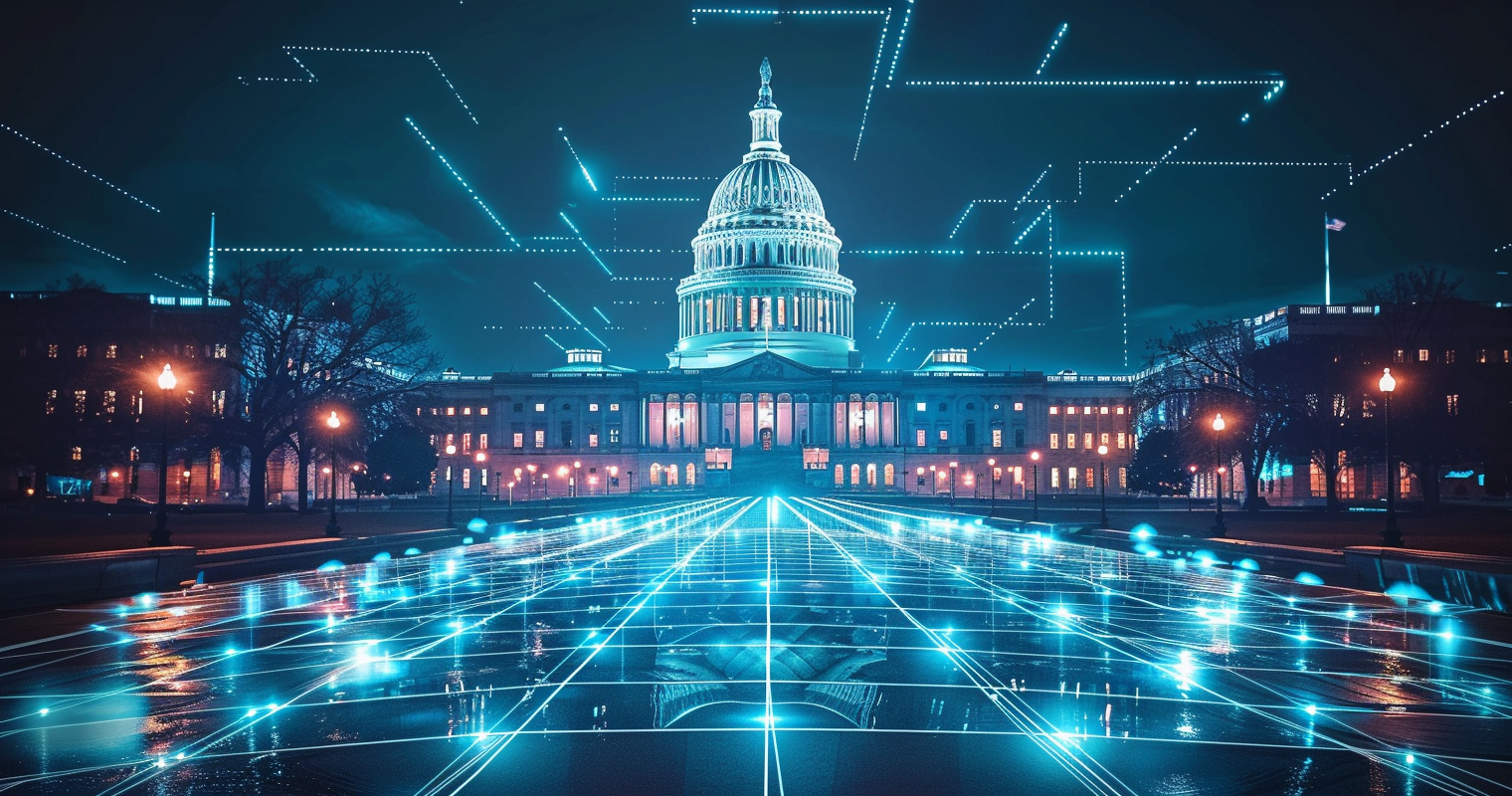Over the past year, Senate Majority Leader Chuck Schumer (D-NY) has led the so-called AI Gang, a group of senators eager to study the effects of artificial intelligence on society and curb the threats it poses through regulation. But calling this group a gang implies a certain level of toughness that was nowhere to be found in the roadmap it unveiled on May 15.
Announcing the 31-page roadmap, a bipartisan set of policy priorities for Congress, Schumer bragged of “months of discussion,” “hundreds of meetings,” and “nine first-of-their-kind AI Insight Forums,” including sessions with OpenAI’s Sam Altman and Meta’s Mark Zuckerberg.
What he delivered, however, was more of a spending plan than a vision for real regulation – the policy proposals were limited, and the approach was hands-off. The roadmap called for $32 billion over the next three years for artificial intelligence-related spending for research and innovation. It offered suggestions, such as a federal data privacy law, legislation to curb deepfakes in elections, and a ban on “social scoring” like the social credit system that China has tested.
Civil society groups aren’t pleased
The long list of proposals is “no substitute for enforceable law – and these companies certainly know the difference, especially when the window to see anything into legislation is swiftly closing,” the AI Now Institute’s Amba Kak and Sarah Myers West wrote in a statement. Maya Wiley, CEO of the Leadership Conference on Civil and Human Rights, wrote that “the framework’s focus on promoting innovation and industry overshadows the real-world harms that could result from AI systems.”
Ronan Murphy of the Center for European Policy Analysis wrote that the gap between the US and EU approaches to AI could not be more stark. “US lawmakers believe it is premature to restrain fast-moving AI innovation,” he wrote. “In contrast, the EU’s AI Act bans facial recognition applications and tools that exhibit racial or other discrimination.”
Former White House technology advisor Suresh Venkatasubramaniantweeted that the proposal felt so unoriginal and recycled that it might have been written by ChatGPT.
An AI law is unlikely this year
Adam Conner, vice president of tech policy at the Center for American Progress, said that while the roadmap has some areas of substance, such as urging a federal data privacy law, “most sections are light on details.” He called the $32 billion spending proposal a “detailed wish list” for upcoming funding bills.
It was a thin result for something that took so long to cook up, he said, and “leaves little time on the calendar this year for substantive AI legislation, except for the funding bills Congress must pass this year and possibly the recently introduced bipartisan bicameral American Privacy Rights Act data privacy bill.” This means any other AI legislation will likely have to wait until next year. “Whether that was the plan all along is an open question,” Conner added.
Danny Hague, assistant director of Georgetown University’s Center for Security and Emerging Technology, agreed that it’s unlikely anything comprehensive gets passed this year. But he doesn’t necessarily see the report as a sign that the US will be hands-off with legislation. He said the Senate Working Group likely realizes that “time is limited,” and there are already “structures in place — regulatory agencies and the congressional committees that oversee them — to act on AI quickly.”
Jon Lieber, managing director for the United States for Eurasia Group, said he didn’t understand why an AI Gang was necessary at all. “I’m confused why Schumer felt the need to do something here,” he said. “This process should have been handled by a senate committee, not the leaders office.
Such a soft line from Congress means that until further notice, President Joe Biden — who has issued an executive order, export controls, and CHIPS Act funding to create jobs, secure tech infrastructure, and directed his agencies to get up to speed on AI — might just be the AI regulator in chief.
